As an Amazon Associate, I earn from qualifying purchases
A vegan meal plan for athletes should prioritize protein, healthy fats, and essential nutrients. This ensures optimal performance and recovery.
Athletes on a vegan diet can achieve peak performance with proper planning. Plant-based proteins like lentils, beans, and tofu are excellent sources. Incorporating a variety of vegetables, fruits, nuts, and seeds ensures a balanced intake of vitamins and minerals. Whole grains such as quinoa and brown rice provide necessary carbohydrates for energy.
Healthy fats from avocados, nuts, and seeds support overall health. Hydration is crucial, so drinking plenty of water is essential. Careful attention to nutrient-dense foods helps meet the high demands of athletic training and competition. A well-rounded vegan diet can fuel athletes effectively, promoting strength, endurance, and recovery.
Introduction To Vegan Nutrition
Vegan nutrition focuses on plant-based foods. It excludes all animal products. This includes meat, dairy, and eggs. Athletes need to fuel their bodies properly. A vegan diet can support their needs. It provides essential nutrients, energy, and recovery support.
Benefits For Athletes
A vegan diet offers many benefits for athletes. It is rich in vitamins and minerals. This helps boost energy levels. Plant-based foods are high in antioxidants. They help reduce inflammation and muscle soreness.
- Better Digestion: Fiber-rich foods aid in digestion and nutrient absorption.
- Improved Recovery: Antioxidants help in faster recovery post-workout.
- Weight Management: Plant-based diets are often lower in calories.
- Boosted Immunity: Vitamins and minerals strengthen the immune system.
Common Myths
Many myths surround vegan diets for athletes. Some believe it lacks protein. This is not true. Many plant-based foods are rich in protein. Examples include beans, lentils, and tofu. Another myth is that vegan diets are too restrictive. In reality, they offer a wide variety of foods.
| Myth | Truth |
|---|---|
| Vegan diets lack protein | Many plant foods are protein-rich |
| Vegan diets are restrictive | They offer a wide variety of foods |
| Vegans can’t build muscle | Vegans can build muscle with proper nutrition |
| Vegan diets are low in energy | Plant-based foods provide ample energy |
Daily Caloric Needs
Understanding your daily caloric needs is crucial for athletes on a vegan meal plan. Meeting these needs ensures optimal performance and recovery.
Calculating Requirements
Start by calculating your Basal Metabolic Rate (BMR). This is the number of calories your body needs at rest.
You can use the Harris-Benedict equation for this:
Men: BMR = 88.362 + (13.397 x weight in kg) + (4.799 x height in cm) - (5.677 x age in years) Women: BMR = 447.593 + (9.247 x weight in kg) + (3.098 x height in cm) - (4.330 x age in years)
Next, multiply your BMR by your activity level:
- Sedentary (little or no exercise): BMR x 1.2
- Lightly active (light exercise/sports 1-3 days/week): BMR x 1.375
- Moderately active (moderate exercise/sports 3-5 days/week): BMR x 1.55
- Very active (hard exercise/sports 6-7 days a week): BMR x 1.725
- Super active (very hard exercise & physical job): BMR x 1.9
Adjusting For Training
As an athlete, adjust your caloric needs based on your training intensity and duration.
Here’s a simple table to help:
| Training Intensity | Caloric Adjustment |
|---|---|
| Low | Add 200-300 calories |
| Moderate | Add 400-600 calories |
| High | Add 700-1000 calories |
Monitor your performance and energy levels. Adjust your intake as needed.
Eat a variety of plant-based foods to meet your nutritional needs. Include fruits, vegetables, grains, legumes, nuts, and seeds.
Stay hydrated and maintain a balanced diet for best results.
Protein Sources
Finding the right protein sources is crucial for vegan athletes. Protein helps build muscles and repair tissues. Below are some great plant-based options.
Plant-based Proteins
Many plants are rich in protein. Here are some top choices:
- Legumes: Beans, lentils, and chickpeas are excellent sources.
- Tofu and Tempeh: Made from soybeans, they are protein-packed.
- Quinoa: A complete protein with all nine essential amino acids.
- Nuts and Seeds: Almonds, chia seeds, and hemp seeds are great options.
- Seitan: Made from wheat gluten, it’s very high in protein.
Combining Foods
Combining different foods helps get a complete protein profile. Here are some effective combinations:
- Rice and Beans: Together, they make a complete protein.
- Hummus and Whole Wheat Bread: Pairing grains and legumes works well.
- Peanut Butter and Whole Grain Bread: Great for a quick snack.
Here is a simple table to show the protein content in common vegan foods:
| Food | Protein (grams per 100g) |
|---|---|
| Chickpeas | 19g |
| Tofu | 8g |
| Quinoa | 4g |
| Almonds | 21g |
| Seitan | 25g |
Carbohydrates And Energy
For athletes on a vegan meal plan, carbohydrates play a crucial role in maintaining energy levels. Carbohydrates are the primary fuel source for muscles during exercise. They help sustain endurance and improve performance. Understanding the best carbohydrate choices and timing can make a significant difference in athletic performance.
Best Carbohydrate Choices
Choosing the right carbohydrate sources is essential for athletes. Here are some of the best options:
- Whole grains: Brown rice, quinoa, and oats provide sustained energy.
- Fruits: Bananas, berries, and apples are rich in vitamins and minerals.
- Legumes: Lentils, chickpeas, and beans are high in fiber and protein.
- Starchy vegetables: Sweet potatoes, squash, and corn offer complex carbs.
- Leafy greens: Spinach, kale, and broccoli add essential nutrients and fiber.
Timing For Performance
Timing carbohydrate intake can optimize energy levels and performance. Here are some guidelines:
- Before exercise: Consume a meal with complex carbs 2-3 hours before.
- During exercise: For long sessions, eat quick-digesting carbs like fruits.
- After exercise: Replenish glycogen stores with a mix of carbs and protein.
A balanced vegan meal plan can help athletes meet their energy needs. Making the right carbohydrate choices and timing them well supports optimal performance and recovery.
Healthy Fats
Healthy fats are crucial for athletes following a vegan meal plan. These fats provide essential energy and support overall health. Understanding the types of healthy fats and their sources can optimize your performance.
Essential Fatty Acids
Essential fatty acids (EFAs) are vital for the body. They include omega-3 and omega-6 fatty acids. The body cannot produce these fats, so you must get them from your diet.
Omega-3 fatty acids help reduce inflammation and support brain health. Omega-6 fatty acids play a role in skin and hair growth. They also support bone health and metabolism.
Sources Of Healthy Fats
Vegan sources of healthy fats are diverse and nutritious. Here are some top options:
- Avocados: Rich in monounsaturated fats and fiber.
- Nuts and Seeds: Almonds, chia seeds, and flaxseeds are excellent sources.
- Olive Oil: High in monounsaturated fats and antioxidants.
- Coconut Oil: Contains medium-chain triglycerides (MCTs) which provide quick energy.
Below is a table highlighting these sources and their key nutrients:
| Source | Key Nutrients |
|---|---|
| Avocados | Monounsaturated fats, Fiber, Potassium |
| Nuts and Seeds | Omega-3, Omega-6, Protein |
| Olive Oil | Monounsaturated fats, Antioxidants |
| Coconut Oil | MCTs, Saturated fats |
Incorporate these healthy fats into your vegan meal plan for optimal performance. Your body and mind will thank you.

Credit: in.pinterest.com
Vitamins And Minerals
Ensuring that athletes on a vegan meal plan get the right vitamins and minerals is crucial. A plant-based diet can provide all necessary nutrients, but it requires careful planning.
Key Nutrients
Vegan athletes must focus on key nutrients to maintain peak performance. These include:
- Vitamin B12: Essential for nerve function and energy production.
- Iron: Vital for oxygen transport in the blood.
- Calcium: Important for bone health and muscle function.
- Omega-3 Fatty Acids: Crucial for heart health and reducing inflammation.
- Vitamin D: Supports bone health and immune function.
- Zinc: Needed for immune function and protein synthesis.
Supplementation Tips
Sometimes, diet alone may not meet all nutrient needs. Consider these tips:
- Vitamin B12: Take a daily supplement or consume fortified foods.
- Iron: Eat iron-rich foods like lentils and spinach. Pair with vitamin C for better absorption.
- Calcium: Opt for fortified plant milks and leafy greens.
- Omega-3 Fatty Acids: Use flaxseeds, chia seeds, or algae oil supplements.
- Vitamin D: Get sunlight exposure or take a vitamin D3 supplement.
- Zinc: Include pumpkin seeds, chickpeas, and grains in your diet.
A balanced vegan meal plan can support athletic performance. Paying attention to vitamins and minerals ensures optimal health and energy levels.
Sample Meal Plans
Creating a balanced vegan meal plan for athletes ensures they get the nutrients needed for peak performance. Here are some sample meal plans to help athletes stay energized and healthy.
Breakfast Options
Kickstart your day with these nutritious and delicious vegan breakfast ideas:
- Overnight oats: Mix rolled oats, chia seeds, almond milk, and berries.
- Smoothie bowl: Blend spinach, banana, protein powder, and almond milk. Top with nuts.
- Tofu scramble: Crumble tofu and sauté with spinach, bell peppers, and turmeric.
- Chia pudding: Combine chia seeds, coconut milk, and maple syrup. Chill overnight.
- Avocado toast: Spread mashed avocado on whole-grain toast. Add a sprinkle of hemp seeds.
Lunch And Dinner Ideas
Refuel with these hearty and nutrient-dense vegan lunch and dinner options:
| Meal | Description |
|---|---|
| Quinoa salad | Mix quinoa, chickpeas, cherry tomatoes, cucumber, and a lemon-tahini dressing. |
| Lentil soup | Cook lentils with carrots, celery, tomatoes, and veggie broth. |
| Veggie stir-fry | Sauté broccoli, bell peppers, tofu, and snap peas with soy sauce. |
| Black bean burrito | Fill a whole-wheat tortilla with black beans, brown rice, and salsa. |
| Stuffed bell peppers | Fill bell peppers with quinoa, black beans, and corn. Bake until tender. |
Snacks And Recovery
A vegan meal plan for athletes must include effective snacks and recovery options. This ensures optimal performance and muscle repair. Whether pre-workout or post-workout, the right snacks make a big difference. Let’s dive into some key options for both.
Pre-workout Snacks
Pre-workout snacks provide the energy needed for exercise. They should be light and easily digestible. Here are some great pre-workout vegan snacks:
- Bananas with almond butter: Rich in potassium and healthy fats.
- Oatmeal with berries: Provides sustained energy and antioxidants.
- Rice cakes with avocado: High in carbs and healthy fats.
- Fruit smoothies: Blend fruits with plant-based milk for quick energy.
Post-workout Recovery
Post-workout snacks focus on muscle recovery and replenishing glycogen stores. They should have a balance of protein and carbs. Here are some ideal post-workout vegan snacks:
- Protein shakes: Use plant-based protein powder with water or almond milk.
- Quinoa salad: High in protein and complex carbs.
- Hummus with carrot sticks: Provides protein and healthy fats.
- Chia seed pudding: Packed with omega-3s and protein.
Here’s a quick table summarizing the options:
| Snack Type | Options |
|---|---|
| Pre-Workout | Bananas with almond butter, Oatmeal with berries, Rice cakes with avocado, Fruit smoothies |
| Post-Workout | Protein shakes, Quinoa salad, Hummus with carrot sticks, Chia seed pudding |
Tips For Success
Starting a vegan meal plan as an athlete can be rewarding. It requires careful planning and a positive mindset. Here are some essential tips to help you succeed.
Meal Prep Strategies
Meal prep is vital for staying on track with your vegan diet. Here are some strategies:
- Plan Your Week: Dedicate time to plan your meals for the week. This ensures you have all the ingredients you need.
- Batch Cooking: Cook large batches of staples like quinoa, lentils, and beans. Store them in the fridge for easy access.
- Use a Meal Planner: Use a meal planner app or a simple spreadsheet. This helps you stay organized.
- Prepare Snacks: Keep healthy snacks like nuts, fruits, and energy bars handy. This helps curb cravings.
Staying Motivated
Staying motivated is crucial for long-term success. Here are some tips to help:
- Set Clear Goals: Define what you want to achieve with your vegan diet. This keeps you focused.
- Track Progress: Keep a journal of your meals and workouts. This helps you see your improvements.
- Join a Community: Connect with other vegan athletes online or in person. Sharing experiences boosts motivation.
- Celebrate Small Wins: Reward yourself for sticking to your plan. Small rewards can be a great motivator.
Using these tips, athletes can thrive on a vegan meal plan. It takes effort, but the rewards are worth it.

Credit: in.pinterest.com
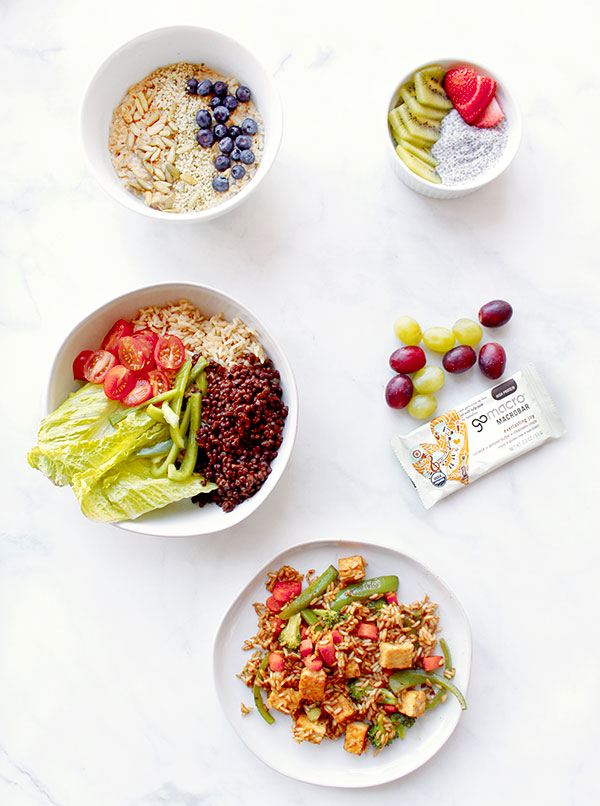
Credit: www.gomacro.com
Frequently Asked Questions
Can Athletes Perform Well On A Vegan Diet?
Yes, athletes can perform well on a vegan diet. A balanced vegan diet provides essential nutrients, supports recovery, and boosts performance.
What Does A Plant-based Athlete Eat?
A plant-based athlete eats fruits, vegetables, whole grains, nuts, seeds, legumes, and plant-based proteins like tofu and tempeh.
What Is The Best Vegan Sports Nutrition?
The best vegan sports nutrition includes plant-based protein powders, legumes, nuts, seeds, quinoa, and leafy greens. These provide essential nutrients for muscle recovery and energy.
How To Get Enough Calories As A Vegan Athlete?
Eat nutrient-dense foods like nuts, seeds, avocados, and legumes. Include whole grains, fruits, and vegetables. Consider protein-rich options like tofu, tempeh, and plant-based protein powders. Snack frequently and prioritize calorie-dense meals.
What Is A Vegan Meal Plan For Athletes?
A vegan meal plan for athletes includes plant-based foods that provide essential nutrients for performance and recovery.
How Do Vegan Athletes Get Protein?
Vegan athletes get protein from legumes, nuts, seeds, tofu, tempeh, and protein-rich grains like quinoa.
What Are Good Vegan Pre-workout Meals?
Good vegan pre-workout meals include bananas with almond butter, oatmeal with berries, and smoothies with spinach and protein powder.
Can Vegan Athletes Build Muscle?
Yes, vegan athletes can build muscle with a balanced diet rich in plant-based protein and proper strength training.
What Are Essential Nutrients For Vegan Athletes?
Essential nutrients for vegan athletes include protein, iron, calcium, vitamin B12, and omega-3 fatty acids.
How Can Vegan Athletes Recover Faster?
Vegan athletes can recover faster by consuming post-workout meals with protein and carbs, staying hydrated, and getting enough rest.
Conclusion
Adopting a vegan meal plan can greatly benefit athletes. It boosts energy, aids recovery, and promotes overall health. With plant-based nutrition, athletes can achieve peak performance. Start incorporating vegan meals into your routine. You’ll soon notice positive changes in your endurance and strength.
Embrace the power of plants for athletic success.
As an Amazon Associate, I earn from qualifying purchases


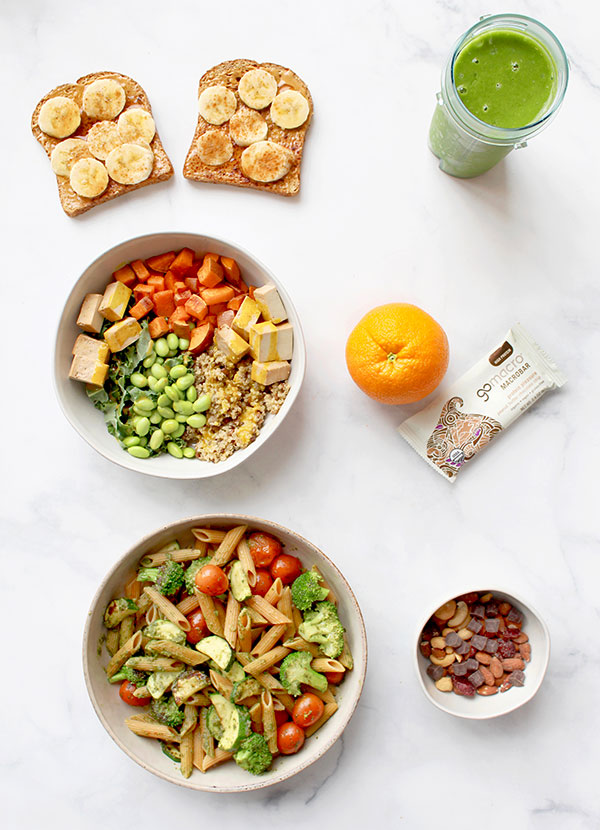

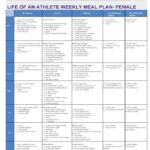



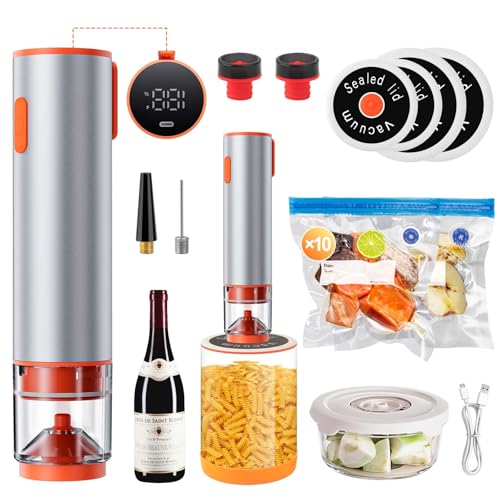
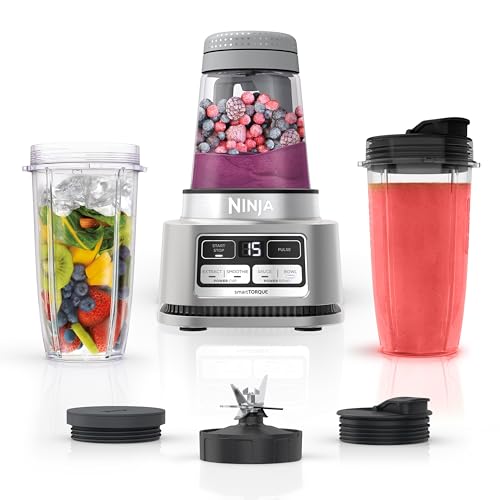

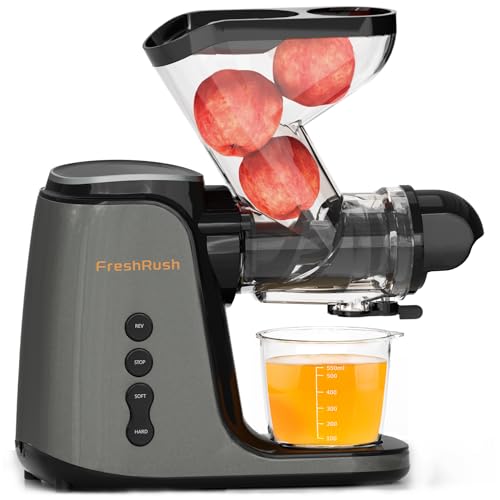
Leave a Reply